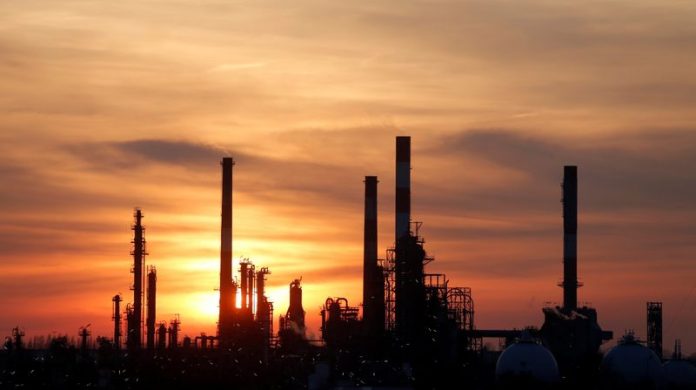
SINGAPORE : Oil prices rose on Monday on expectations that OPEC and allied producers may cap output at current levels in February at a meeting later in the day as the coronavirus pandemic keeps worries about first-half demand elevated.
Brent crude for March was at $52.42 a barrel, up 62 cents or 1.2%, by 0348 GMT while U.S. West Texas Intermediate crude for February rose 55 cents, or 1.1%, to $49.07 a barrel.Broader macro momentum trends including a weaker dollar and investors positioning for a recovery in the oil sector this year could be supporting oil prices, Energy Aspects analyst Virendra Chauhan said.
“Maybe there is some positive sentiment from OPEC+ looking to constrain supply in light of the virus rearing its ugly head in the west,” he added.
Mohammad Barkindo, Secretary General of the Organization of the Petroleum Exporting Countries (OPEC), said on Sunday that while crude demand is expected to rise by 5.9 million barrels per day (bpd) to 95.9 million bpd this year, the group sees plenty of downside demand risks in the first half of 2021.
“We are only beginning to emerge from a year of deep investment cuts, huge job losses and the worst crude oil demand destruction on record,” he said.
Prices ended 2020 about 20% below 2019’s average, still recovering from the impact of global economic lockdown measures imposed to battle COVID-19 that slashed fuel demand, even though the world’s major producers agreed record output cuts through the year.
OPEC and allied producers including Russia, a grouping known as OPEC+, decided at a meeting last month to raise output by 500,000 barrels per day in January, anticipating a boost in demand, and agreed to meet every month to review production.
Analysts from Energy Aspects and RBC Capital said OPEC+ was likely to maintain January production levels in February.
“We think the producer group will opt to forgo any further production increases for February with COVID-19 cases continuing to climb and the slower-than-expected vaccine rollout,” RBC Capital’s Helima Croft said.
In the United States, crude oil production stayed under pressure from weak prices and tepid demand, down more than 2 million barrels per day (bpd) in October from earlier this year, a government report showed on Jan. 1.
















